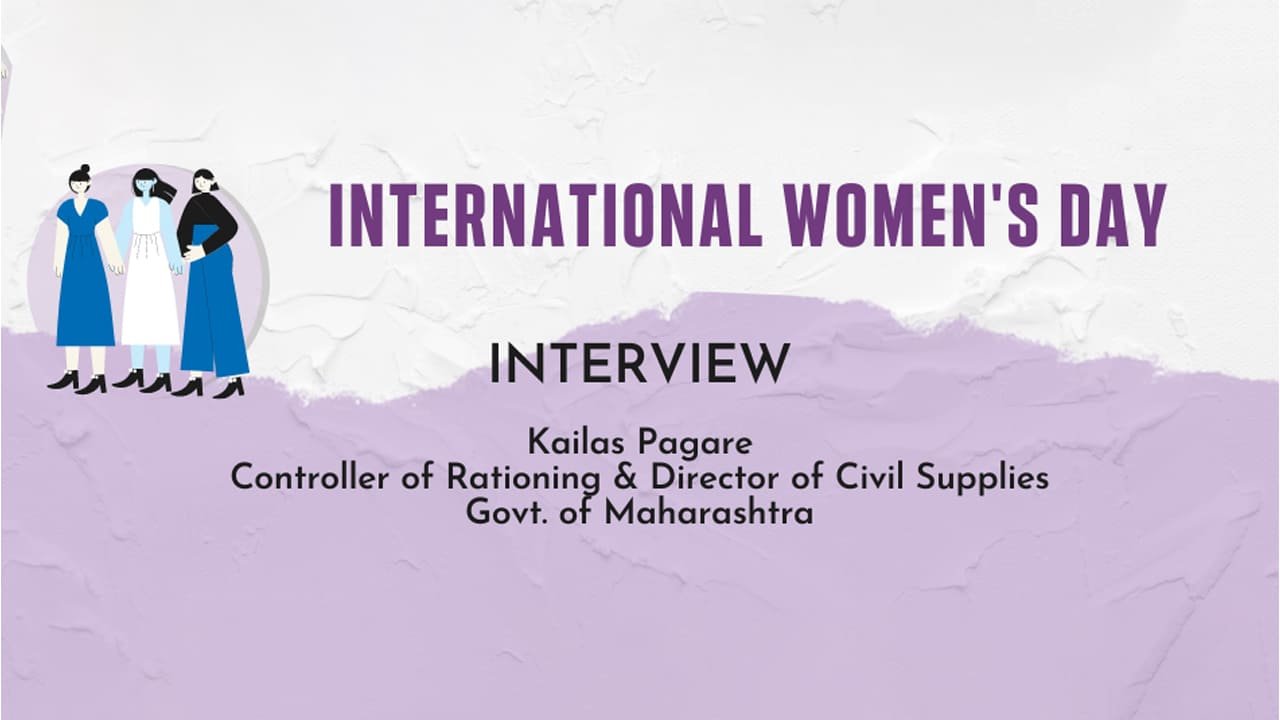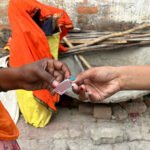AZRA QAISAR
DOCUMENTATION AND COMMUNICATIONS MANAGER
Mr. Kailas Pagare(IAS) is the Controller of Rationing & Director of Civil Supplies, Govt. of Maharashtra. His Office has been instrumental in ensuring access to ration and other supplies to women in the red-light area amid COVID-19. He has helped us in procuring ration cards for many women in the red-light areas. This Women’s Day, we met with Mr, Pagare to understand his experiences of working to ensure access to the civil supplies for the marginalized.
Could you share with us a bit about your background, and how you joined the civil services?
I come from a small village in Jalna, Maharashtra. My parents were not educated but wanted me to be educated. I studied in my village till 7th standard and then moved to Aurangabad as there were no avenues in my village to study further. I eventually joined the Vasantrao Naik Marathwada Agricultural University, for my graduation. The environment at the University was quite geared towards competitive exams, and it was there that I got to know about civil services. I have been serving as an IAS Officer for 27 years now.
2020 has been a very challenging year globally. What has been your experience of working to enable access to ration amid COVID-19?
In January 2020, there was some discussion about the coronavirus but never did we imagine how grave the situation would get. A few days prior to the lockdown, we had a meeting with the Chief Minister’s Office, where we discussed how we would manage if the lockdown was imposed. There are about 19,46000 who avail of the services of the public distribution system as priority households. I met with representatives of different retail and wholesale chains and got to know that they had stocks for about two weeks. The system works on a supply chain, and many times we have had to coordinate with other states as well, to ensure that ration reaches the homes in Maharashtra, amid COVID-19.
You have been very keen on ensuring that women in the red-light areas are not left behind, and get access to the public distribution system. Tell us a bit more about that.
Most women in the red-light areas do not have ration cards. I wanted to ensure that they had access to ration amid COVID-19 so I reached out to partners like Prerana to understand how we can help. When the Atmanirbhar Yojana was announced, it made the situation easier for us as we could distribute ration without ration cards now, if the recipient had an Aadhar Card. I was determined to not exclude the marginalized, and my concern is rooted in my previous work with the Women and Child Department. Transgender people, women in the red-light area, women in the informal sector (house-helps), and women laborers are often not included in many interventions. I asked around, sought feedback, and was determined to ensure that they had access to resources.
Women in the red-light area often struggle with documentation. How do you think we can do better to ensure long-term access to the public distribution system for women in the red-light area?
The schemes that were brought amid COVID-19 are temporary, and it would help if the Supreme Court could come up with similar schemes to ensure access to ration for marginalized women. The Ration Card is not a proof of residence or domicile so it should not be so challenging for a scheme to be inclusive of the marginalized. It would also help our Department if there was better coordination with organizations that work on the ground. A lot of times, we get Orders but we are unable to reach out to more women. We want to help, and we seek the support of local partners in that.
As we conclude, who are some of the women that inspire you?
Since my growing years, I have found the late Indira Gandhi, very inspiring and dignified. Kiran Bedi is also an inspiration.









